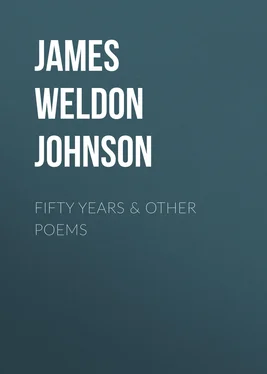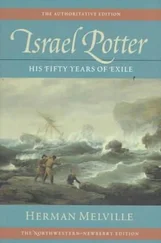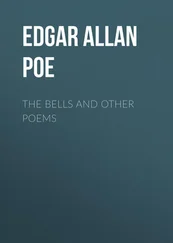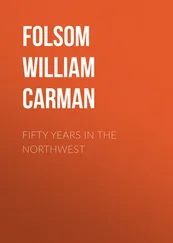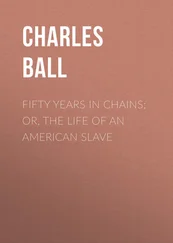James Weldon Johnson - Fifty years & Other Poems
Здесь есть возможность читать онлайн «James Weldon Johnson - Fifty years & Other Poems» — ознакомительный отрывок электронной книги совершенно бесплатно, а после прочтения отрывка купить полную версию. В некоторых случаях можно слушать аудио, скачать через торрент в формате fb2 и присутствует краткое содержание. Жанр: foreign_poetry, Поэзия, foreign_antique, foreign_prose, на английском языке. Описание произведения, (предисловие) а так же отзывы посетителей доступны на портале библиотеки ЛибКат.
- Название:Fifty years & Other Poems
- Автор:
- Жанр:
- Год:неизвестен
- ISBN:нет данных
- Рейтинг книги:4 / 5. Голосов: 1
-
Избранное:Добавить в избранное
- Отзывы:
-
Ваша оценка:
- 80
- 1
- 2
- 3
- 4
- 5
Fifty years & Other Poems: краткое содержание, описание и аннотация
Предлагаем к чтению аннотацию, описание, краткое содержание или предисловие (зависит от того, что написал сам автор книги «Fifty years & Other Poems»). Если вы не нашли необходимую информацию о книге — напишите в комментариях, мы постараемся отыскать её.
Fifty years & Other Poems — читать онлайн ознакомительный отрывок
Ниже представлен текст книги, разбитый по страницам. Система сохранения места последней прочитанной страницы, позволяет с удобством читать онлайн бесплатно книгу «Fifty years & Other Poems», без необходимости каждый раз заново искать на чём Вы остановились. Поставьте закладку, и сможете в любой момент перейти на страницу, на которой закончили чтение.
Интервал:
Закладка:
James Weldon Johnson
Fifty years & Other Poems
To G. N. F.
ACKNOWLEDGMENT
For permission to reprint certain poems in this book thanks are due to the editors and proprietors of the Century Magazine , the Independent , The Crisis , The New York Times , and the following copyright holders, G. Ricordi and Company, G. Schirmer and Company, and Joseph W. Stern and Company.
INTRODUCTION
Of the hundred millions who make up the population of the United States ten millions come from a stock ethnically alien to the other ninety millions. They are not descended from ancestors who came here voluntarily, in the spirit of adventure to better themselves or in the spirit of devotion to make sure of freedom to worship God in their own way. They are the grandchildren of men and women brought here against their wills to serve as slaves. It is only half-a-century since they received their freedom and since they were at last permitted to own themselves. They are now American citizens, with the rights and the duties of other American citizens; and they know no language, no literature and no law other than those of their fellow citizens of Anglo-Saxon ancestry.
When we take stock of ourselves these ten millions cannot be left out of account. Yet they are not as we are; they stand apart, more or less; they have their own distinct characteristics. It behooves us to understand them as best we can and to discover what manner of people they are. And we are justified in inquiring how far they have revealed themselves, their racial characteristics, their abiding traits, their longing aspirations,—how far have they disclosed these in one or another of the several arts. They have had their poets, their painters, their composers, and yet most of these have ignored their racial opportunity and have worked in imitation and in emulation of their white predecessors and contemporaries, content to handle again the traditional themes. The most important and the most significant contributions they have made to art are in music,—first in the plaintive beauty of the so-called "Negro spirituals"—and, secondly, in the syncopated melody of so-called "ragtime" which has now taken the whole world captive.
In poetry, especially in the lyric, wherein the soul is free to find full expression for its innermost emotions, their attempts have been, for the most part, divisible into two classes. In the first of these may be grouped the verses in which the lyrist put forth sentiments common to all mankind and in no wise specifically those of his own race; and from the days of Phyllis Wheatley to the present the most of the poems written by men who were not wholly white are indistinguishable from the poems written by men who were wholly white. Whatever their merits might be, these verses cast little or no light upon the deeper racial sentiments of the people to whom the poets themselves belonged. But in the lyrics to be grouped in the second of these classes there was a racial quality. This contained the dialect verses in which there was an avowed purpose of recapturing the color, the flavor, the movement of life in "the quarters," in the cotton field and in the canebrake. Even in this effort, white authors had led the way; Irvin Russell and Joel Chandler Harris had made the path straight for Paul Laurence Dunbar, with his lilting lyrics, often infused with the pathos of a down-trodden folk.
In the following pages Mr. James Weldon Johnson conforms to both of these traditions. He gathers together a group of lyrics, delicate in workmanship, fragrant with sentiment, and phrased in pure and unexceptionable English. Then he has another group of dialect verses, racy of the soil, pungent in flavor, swinging in rhythm and adroit in rhyme. But where he shows himself a pioneer is the half-dozen larger and bolder poems, of a loftier strain, in which he has been nobly successful in expressing the higher aspirations of his own people. It is in uttering this cry for recognition, for sympathy, for understanding, and above all, for justice, that Mr. Johnson is most original and most powerful. In the superb and soaring stanzas of "Fifty Years" (published exactly half-a-century after the signing of the Emancipation Proclamation) he has given us one of the noblest commemorative poems yet written by any American,—a poem sonorous in its diction, vigorous in its workmanship, elevated in its imagination and sincere in its emotion. In it speaks the voice of his race; and the race is fortunate in its spokesman. In it a fine theme has been finely treated. In it we are made to see something of the soul of the people who are our fellow citizens now and forever,—even if we do not always so regard them. In it we are glad to acclaim a poem which any living poet might be proud to call his own.
Brander Matthews.Columbia University in the City of New York.
FIFTY YEARS & OTHER POEMS
FIFTY YEARS
O brothers mine, to-day we stand
Where half a century sweeps our ken,
Since God, through Lincoln's ready hand,
Struck off our bonds and made us men.
Just fifty years—a winter's day—
As runs the history of a race;
Yet, as we look back o'er the way,
How distant seems our starting place!
Look farther back! Three centuries!
To where a naked, shivering score,
Snatched from their haunts across the seas,
Stood, wild-eyed, on Virginia's shore.
Far, far the way that we have trod,
From heathen kraals and jungle dens,
To freedmen, freemen, sons of God,
Americans and Citizens.
A part of His unknown design,
We've lived within a mighty age;
And we have helped to write a line
On history's most wondrous page.
A few black bondmen strewn along
The borders of our eastern coast,
Now grown a race, ten million strong,
An upward, onward marching host.
Then let us here erect a stone,
To mark the place, to mark the time;
A witness to God's mercies shown,
A pledge to hold this day sublime.
And let that stone an altar be,
Whereon thanksgivings we may lay,
Where we, in deep humility,
For faith and strength renewed may pray.
With open hearts ask from above
New zeal, new courage and new pow'rs,
That we may grow more worthy of
This country and this land of ours.
For never let the thought arise
That we are here on sufferance bare;
Outcasts, asylumed 'neath these skies,
And aliens without part or share.
This land is ours by right of birth,
This land is ours by right of toil;
We helped to turn its virgin earth,
Our sweat is in its fruitful soil.
Where once the tangled forest stood,—
Where flourished once rank weed and thorn,—
Behold the path-traced, peaceful wood,
The cotton white, the yellow corn.
To gain these fruits that have been earned,
To hold these fields that have been won,
Our arms have strained, our backs have burned,
Bent bare beneath a ruthless sun.
That Banner which is now the type
Of victory on field and flood—
Remember, its first crimson stripe
Was dyed by Attucks' willing blood.
And never yet has come the cry—
When that fair flag has been assailed—
For men to do, for men to die,
That have we faltered or have failed.
Интервал:
Закладка:
Похожие книги на «Fifty years & Other Poems»
Представляем Вашему вниманию похожие книги на «Fifty years & Other Poems» списком для выбора. Мы отобрали схожую по названию и смыслу литературу в надежде предоставить читателям больше вариантов отыскать новые, интересные, ещё непрочитанные произведения.
Обсуждение, отзывы о книге «Fifty years & Other Poems» и просто собственные мнения читателей. Оставьте ваши комментарии, напишите, что Вы думаете о произведении, его смысле или главных героях. Укажите что конкретно понравилось, а что нет, и почему Вы так считаете.
